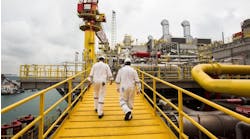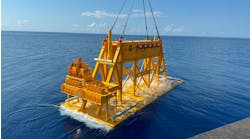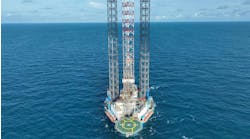Noble Denton funds Cambridge ultra deepwater design research
Offshore staff
CAMBRIDGE, UK -- Noble Denton is funding a three-year research program at the University of Cambridge into effective modeling for ultra deepwater mooring and riser developments.
The move by the exploration and production sector towards ever-increasing water depths creates difficulties for existing integrated modeling of the floater, moorings, and risers, the company says.
In the case of computational models, the dynamics of the floater, moorings, and risers are highly coupled, and complex mathematical equations are required to capture this behavior, leading to excessive computation times. For physical model tests it is impossible to produce a scale model which accurately captures all aspects of the system, given the restricted water depth of testing tanks, the company says.
This research will consider how to overcome these difficulties. In the case of computational modeling, the project will consider the development of an efficient truncated model of the mooring lines and risers.
With this approach, the dynamics of the upper section of each line will be modeled in detail, terminating in an approximate analytical model that aims to simulate the remainder of the line.
As to physical modeling, two strategies will be considered, the company says. Firstly, the use of actuators to replicate the behavior of the lower sections of the lines, using the type of model developed for the computational work. Secondly, the use of dynamic similitude to develop a passive shallow water line with the same vibrational characteristics as the full line.
The work on physical models initially will be conceptual, although the findings may lead to modeling in collaboration with a testing facility, the company says.
BP is providing industry expertise and guidance to the research program.
03/24/2009


